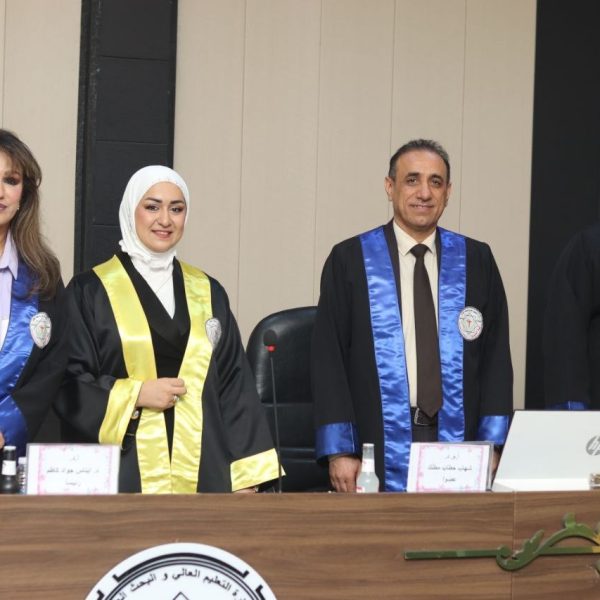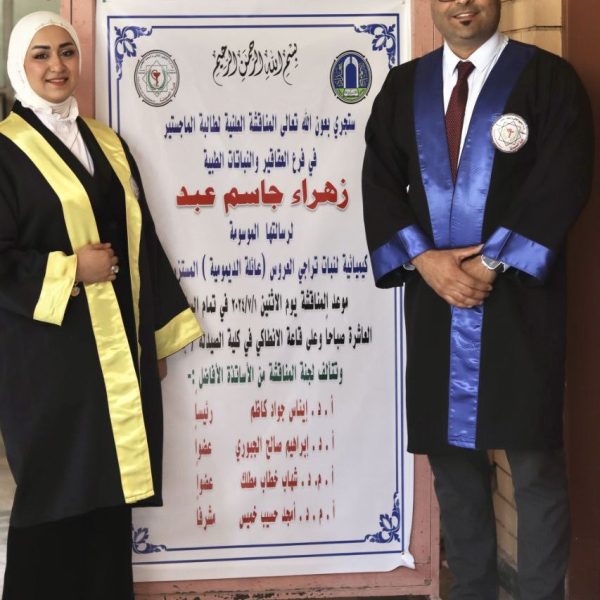The College of Pharmacy discussed the MSc thesis entitled “Phytochemical investigation of Mesembryanthemum cordifolium l.f. (F:Aizoaceae) cultivated in Iraq and assessment of it is anti-angiogenic activity” by the student Zahraa Jasim Abed and the supervisor, Assistant Professor Dr. Amjed Haseeb Khamees, at the Department of Pharmacognosy and Medicinal Plants . This study is considered the first study for the detection of the components of the Mesembryanthemum cordifolium plant cultivated in Iraq and the assessment of its anti-angiogenic activity (blood vessel formation). This study focuses on the extraction, fractionation, isolation, purification, identification, and quantitative estimation of several biologically significant constituents found in the plant. These constituents belong to four major groups, including alkaloids, lignans, polyphenols, and flavonoids. Plant material was extracted using a Soxhlet apparatus after defatting with n-hexane for 72 hr. and replacement of solvent for three times (each 24 hr.). The crude methanolic extract then was fractionated using solvents of different polarity. The extracts were then subjected to preliminary phytochemical screening, TLC, and HPLC to detect various chemical constituents. Active components were isolated using preparative TLC and characterized using TLC, FTIR, NMR, and LC-MS-MS. Anti-angiogenic activity was assessed by testing different fractions (petroleum ether, chloroform and ethyl acetate) on rat aortic rings.Phytochemical analysis revealed the presence of alkaloids, lignans, polyphenols, and flavonoids in Mesembryanthemum cordifolium. Five compounds were isolated and identified: unknown alkaloids, Pinoresinol, ferulic acid, luteolin, and caffeic acid. In the angiogenesis assay, petroleum ether, chloroform, and ethyl acetate fractions significantly inhibited blood vessel growth compared to the control group, and suramin (positive control). The chloroform fraction exhibited the strongest anti-angiogenic effect. This study, the first study on Mesembryanthemum cordifolium cultivated in Iraq, demonstrates the presence of diverse bioactive compounds and highlights its potential as a source of anti-angiogenic agents. The identification of a novel alkaloid and determine its structure. The strong anti-angiogenic activity of the chloroform fraction suggests its potential for further exploration in the development of anti-angiogenic therapies.Additional research is necessary to discover unidentified chemicals in this plant, examine the levels of alkaloids, flavonoids, phenolic compounds, lignans present in the plant and identify the primary bioactive compounds responsible for the antiangiogenic action of the plant.




